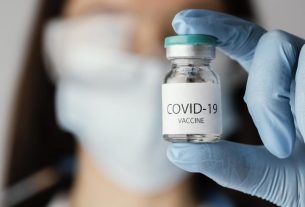Students have launched a legal challenge against the exam regulator Ofqual with the watchdog itself being accused of “blindsiding” the government on the exam results-appeals process.
Ofqual withdrew its guidance on how schools can appeal against the A level grades only hours after publishing it, with a statement saying the process would be “reviewed”.
Labour have called on the prime minister to take personal responsibility for the A levels results “mess” in England that has sparked anger, confusion and fury among pupils and teachers following Thursday’s (August 13) publication of results which revealed an algorithm had downgraded almost 40% of predicted grades.
The fall-out from the A levels fiasco has intensified the pressure on education secretary Gavin Williamson, whose head is already resting on “the PM’s chopping block” for the continuing furore and uncertainty around the reopening of schools in September.
Williamson had claimed students can use grades received in mock exams and a wide range of school work in the appeals process, which the Guardian reports contradicts the initial guidance. Ofqual revoked this late last night (Saturday), with an “insider” saying the exam regulator “blindsided” the Department for Education, after ministers had endorsed the guidance just two hours earlier.”
‘We’ve got a strong legal case and a great legal team’
Ministers are “braced” for High Court action, reports the Telegraph, with students assembling a “top legal team” – through crowdfunding – to petition Boris Johnson for a judicial review of Ofqual’s failings.
Curtiss Parfitt-Ford, 18, began the petition and spoke of his “disgust” that thousands have received “grades that aren’t indicative of the hard work and effort that’s been put in for the last two years.”
He told the Telegraph: “We don’t want to have to take the Government to court on this, but we’ve got a strong legal case and a great legal team. We hope people will back our crowdfunder so we’re ready to take this forward to a judicial review if we need to.”
Parfitt-Ford received his predicted grades and told the Guardian that seeing “classes of more than 15 people would be calculated [by the automated algorithm] without any reference to teachers’ predicted grades” prompted his petition.
“We will end up in the situation where young people are judged by the school’s background and not wholly on their own abilities. It is our contention that that is outside of Ofqual’s jurisdiction. Their job is to assess individual performance.”
Students protest in Westminster
Around 300 students protested in Westminster today (Sunday) calling for clarity on the issue and criticising the government for a “complete lack of preparedness – they had five months, they knew this would happen,” one protestor told the BBC.
“Even what they [Ofqual] published yesterday, and what they’ve withdrawn wouldn’t have helped me,” said another.
Cheers were heard for the A level student who burned their results paper to protest the downgrading with students’ anger fired further by Ofqual’s decision to “review” its appeals process.
Student call for a u-turn on ‘the classist, racist moderation system’
President of the National Union of Students (NUS) Larissa Kennedy said: “Given the role played by student protesters in changing the policy in Scotland, we are unsurprised students in England are looking to make their voice heard.
“The UK Government has refused to listen to students’ calls for a u-turn on the classist, racist moderation system and young people are left with no choice but to take to the streets. We support their efforts to make sure ministers listen to students’ real concerns about the unfairness of the moderation system.”
Ministers will be scrambling to try and calm the storm around A levels ahead of Thursday’s publication of GCSE results for 600,000 pupils in England and. A former Tory education secretary has already urged Williamson to “instruct” Ofqual not to release the figures.
“The A-level results have produced hundreds of thousands of unfair and barely explicable downgrades,” said Margaret Thatcher’s education secretary Kenneth Baker. “They have helped smaller private schools but hit the brighter students in a poorly performing state school.”




